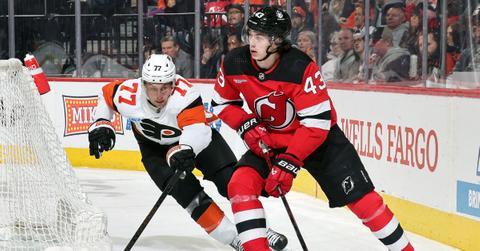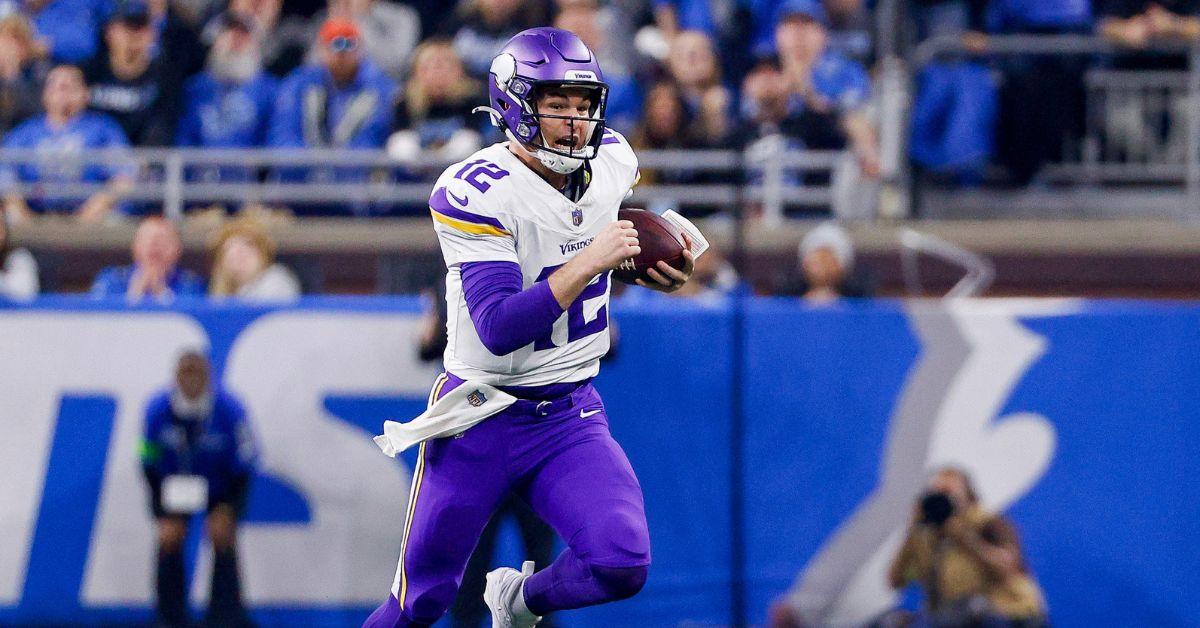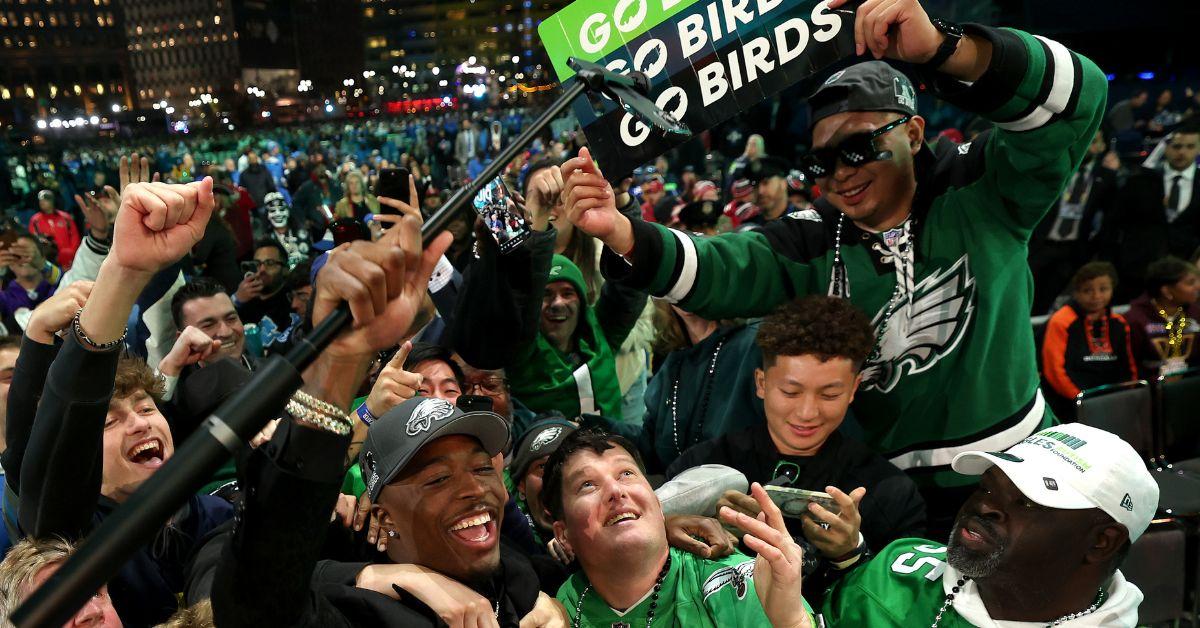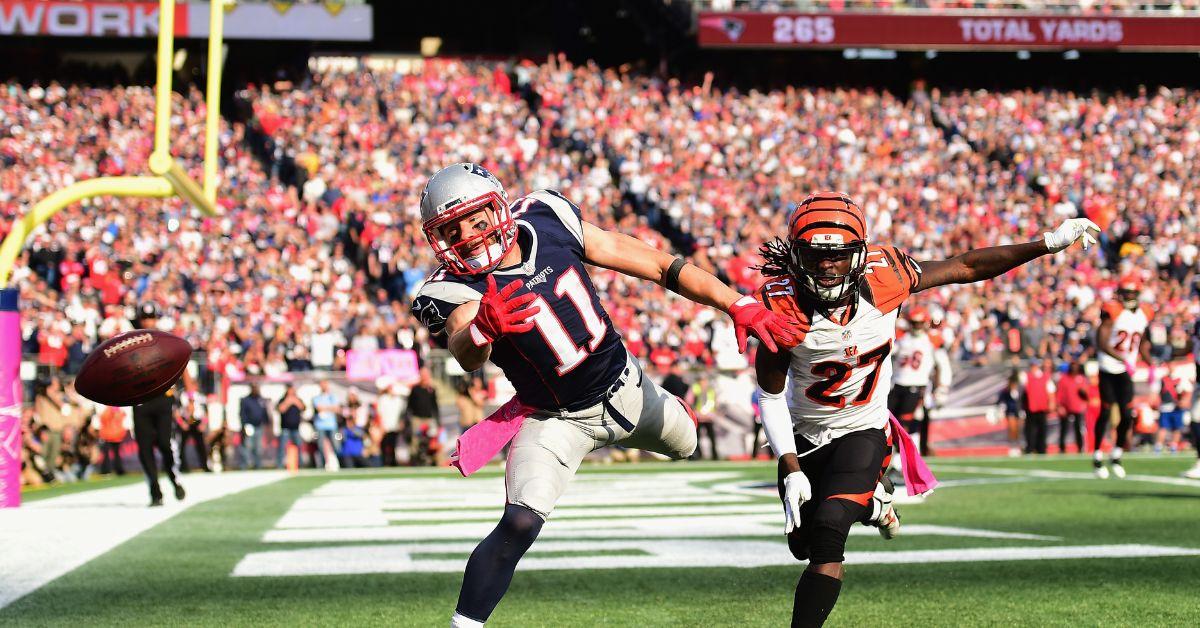How Sports Teams Get Their Regional Names, From the Minnesota Vikings to the New Jersey Devils
Minnesota Vikings, New Jersey Devils, Arizona Coyotes, Tennessee Titans, and more tend to be a sports anomaly.
Published May 30 2024, 6:44 p.m. ET

Plenty of sports fans might not think twice about team names. After all, when you grow up with your favorite team's name being plastered everywhere, why would you give it a second thought?
However, when you start to think about it, there is something quite odd. While most sports teams are named after the city that they are representing, a few are based on the states. For example, the Minnesota Wild references the state as a whole where as the Kansas City Chiefs are centered on the city ... not Missouri.

Why are some sports teams named after states?
It's not many teams, but just a handful enough to be noticeable. A great example of this strange occurrence is with the state of Minnesota, specifically. All of their professional sports teams are centered around the state: Minnesota Vikings, Minnesota Wild, Minnesota Timberwolves, and Minnesota Twins. More recently, with the launch of the Professional Women's Hockey League, they kept up that trend with the mascot-less team being dubbed "PWHL Minnesota."
There is one exception ... they did give Detroit their own NFL team because they figured the state could handle two NFL teams. So, why have they chosen to do this? Minnesota, and many of the states in question, only host one professional team per sport, if any. As a result, it doesn't make sense to divide between the cities.

States like Pennsylvania need to be able to distinguish between their teams. For example, they have both the Pittsburgh Steelers and the Philadelphia Eagles in the NFL and that remains true for the rest of their professional sports.
With that in mind, the state of Pennsylvania becomes divided and that's OK. The goal of these leagues is to maximize the market, and splitting the state of Pennsylvania in half is OK because it keeps everyone included and won't ostracize anyone.
However, states like Minnesota don't have a high enough population in different areas to allow such a split. If they were to specify a city, that would be a marketing decision gone wrong. Suddenly, they'd be cutting out markets from other cities, potentially turning them off from the sport entirely.

Another great example to visualize is in New Jersey. The state is small not just in population, but also in size. It wouldn't make sense to plop a team in different cities when they're all within simple driving distance. When it comes to their athletics, the New Jersey Devils play in Newark, but encapsulate the whole state for the NHL.
Interestingly enough, the state does not have an NFL team. Instead, both of New York City's teams (the Jets and the Giants) play technically in New Jersey at the MetLife Stadium. The league deemed that New Jersey doesn't have the population to support a separate team there, but they do have the space. They also decided that New York State can accommodate another football team. Thus, the Buffalo Bills was born.

Where did the New England Patriots get their name?
An even more extreme case of population size dictating the name of a team is with the New England Patriots. Originally, they were named after Boston.
They are still largely associated with the city, but their name was extended to an entire region in an effort to entice far more people without needing to devote a whole new team there.